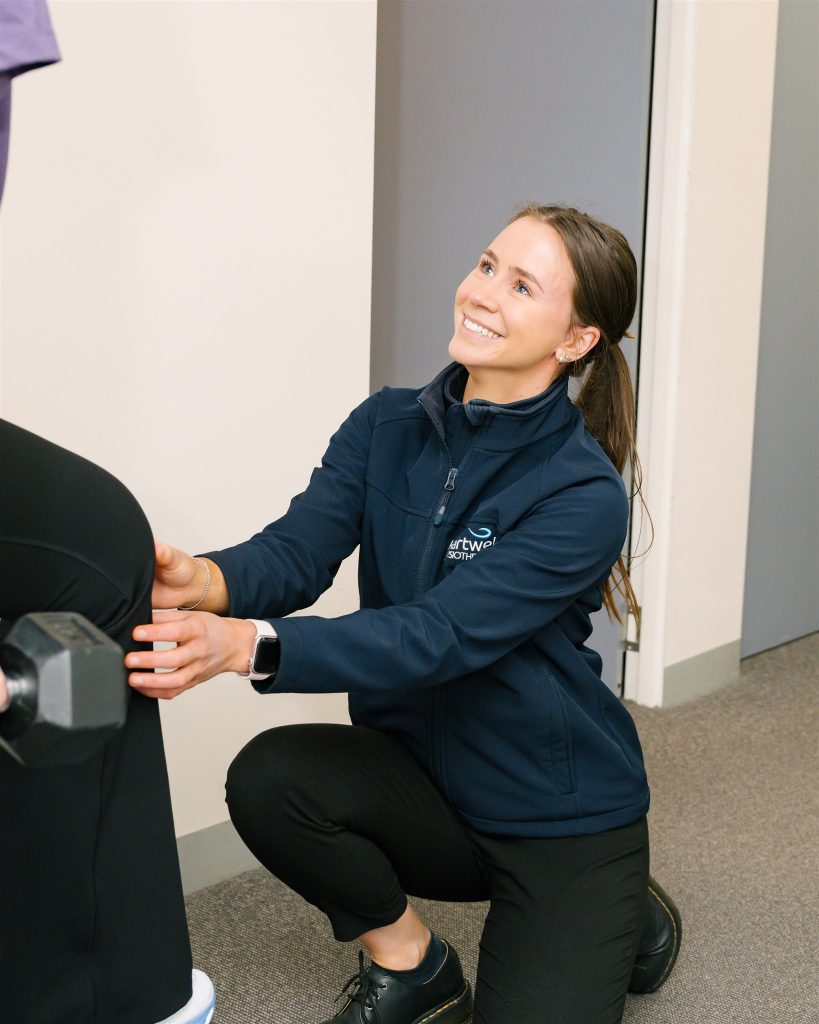
KEY DIFFERENCES BETWEEN PHYSIOTHERAPISTS & EXERCISE PHYSIOLOGISTS
When seeking help for injury recovery, rehabilitation, or managing a chronic condition, you might wonder… Should I see a physiotherapists or an exercise physiologists? Although their roles overlap in promoting physical well-being, they have distinct areas of expertise. Understanding these differences can help you choose the right professional for your specific needs.
What do Physiotherapists do?
Scope of Practice:
- Physiotherapists are primary (first point of contact) professionals trained to assess, diagnose, and treat musculoskeletal conditions
- They focus on injury rehabilitation, pain management, and improving movement and function following surgeries or injuries.
Clinical Focus:
- Physiotherapists treat both acute and chronic injuries using techniques like hands-on therapy, health education and advice, rehabilitation exercises, home exercise prescription and tailored group exercise.
- Hands-on techniques may include: joint mobilisations, soft tissue massage, and other physical therapies aimed at restoring function.
Accreditation:
- In Australia, physiotherapists are registered with the Australian Health Practitioner Regulation Agency (AHPRA). Their professional standards and clinical practice are tightly regulated to ensure high-quality care.
What do Exercise Physiologists do?
Scope of Practice:
- Exercise physiologists are experienced in prescribing exercise for managing chronic conditions such as diabetes, heart disease, obesity, and arthritis.
- Their primary aim is to prevent disease progression, improve health, and manage lifestyle-related chronic diseases through tailored exercise programs.
Clinical Focus:
- Unlike physiotherapists, exercise physiologists do not diagnose conditions or employ hands-on treatment techniques. Instead, they focus on exercise as the primary intervention for long-term health improvement and chronic disease management (ie. Diabetes).
- They work with patients to create personalised exercise plans that address specific health conditions and goals.
Accreditation:
- Exercise physiologists do not require registration with AHPRA but must adhere to the professional standards set by Exercise and Sports Science Australia (ESSA).
Treatment Methods:
- Exercise physiologists primarily prescribe exercise interventions. They develop programs designed to improve fitness, manage chronic conditions, and enhance quality of life.
- Education about physical activity and its benefits is also a key aspect of their practice, empowering patients to manage their own health.
Physiotherapists and exercise physiologists both play valuable roles in enhancing health and well-being, with different methods and areas of focus. To book an appointment with one of our experienced Physio call 9889 3903 or book online.
Not sure if Physio is right for you? Call us on 9889 3903 to arrange a FREE 10 minute phone consultation.
For more information see the Australian Physiotherapy Association (APA) Fact Sheet Differences Between a Physiotherapist and an exercise Physiologist.
Related Blogs:
What is the difference between a Physio & a Sports Medicine Doctor?






